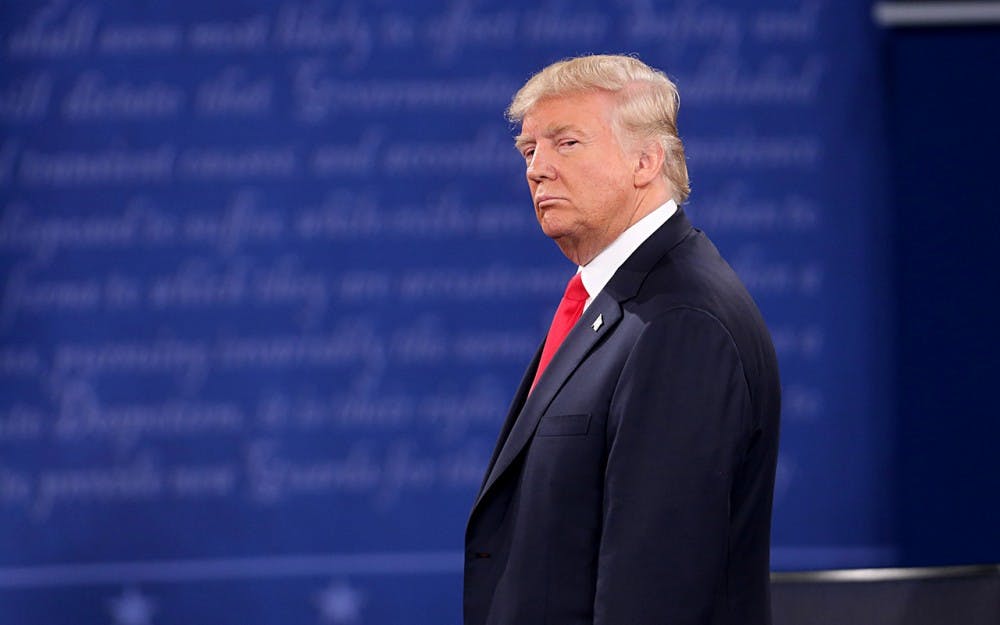As the nation transitions into a new presidency, some scientists say Donald Trump’s proposed environmental policies could have immediate and destructive consequences.
Scientists at IU expressed their concerns for the president-elect’s actions and positions in handling environmental issues and their future effects on climate change for the safety of the entire planet.
Trump has already taken action to reverse efforts in fighting climate change. He chose climate change skeptic Myron Ebell to lead his Environmental Protection Agency transition team.
“As a scientist and environmental advocate, I’m deeply disturbed by the proposed appointment of Myron Ebell as lead of his EPA transition team,” professor of geophysics Michael Hamburger said.
Ebell is a partisan politician supported by coal industry financial interests and is out of touch with scientific consensus, Hamburger said.
The EPA is required under the Clean Air Act to regulate carbon dioxide and other greenhouse gases.
However, in a government in which Republicans control the legislative and executive branches, Congress could likely amend the Clear Air Act to limit the EPA’s abilities, chemistry professor Philip Stevens said.
Hamburger said it’s no secret Trump opposes the EPA and its role in protecting the health of Americans.
“I think this appointment also makes it clear that the EPA under Trump would not be adding any new regulations to the industry under his watch,” Stevens said.
Despite these concerns, Stevens said it’s unlikely the EPA will quickly undo regulations put into place by President Obama.
“Rewriting the rules would take time, and the new rules would also be subject to litigation from environmental groups,” Stevens said. “However, they could stop enforcing and defending them.”
This might be the regulation of mercury and air toxic emissions from power plants or the new ozone health standard.
The Trump presidency might also stop enforcing the Clean Power Plan, one of the Obama administration’s EPA proposals in 2014 that limited carbon pollution from power plants, Stevens said.
Any reversal of or action against these policies would be detrimental to the atmosphere and human health, Stevens said.
Reducing carbon dioxide emissions has other benefits, Stevens said. Fossil fuel combustion releases harmful emissions that create photochemical smog and acid deposition.
Though Trump has made claims about international climate change agreements, it’s not clear how that rhetoric will translate into administrative action, Hamburger said.
Trump cannot cancel the Paris Agreement — an international effort signed in 2016 to reverse climate change effects and limit temperature increase — as he claimed he would, but he can withdraw from it, geography professor Scott Robeson said.
A diplomatic miracle, the Paris agreement brought together 193 countries to fight the most devastating effects of climate change, Hamburger said.
Disavowing the agreement could lead to a loss of trust in American leadership on energy and the environment, Hamburger said.
“That could have long-term impacts on climate, possibly for thousands of years, but it is also the case that other countries will continue to take the leadership role, and the U.S. could lag them substantially in tackling carbon reductions,” Robeson said.
Trump’s EPA could choose not to enforce the Paris Agreement’s regulations to reduce carbon dioxide emissions and influence other countries not to enforce regulations as well, Stevens said.
“As a result, it would be difficult, if not impossible, to limit the global temperature rise to less than 2 degrees Celsius, the limit necessary to reduce the most serious risks and impacts of climate change,” Stevens said.
By reducing carbon emission from a global perspective, the world can still fight climate change regardless of Trump’s decisions.
The U.S. government protection of the environment will most likely deteriorate during the next four years, Robeson said. Trump may attempt to roll back protections in the Endangered Species Act and the National Ambient Air Quality Standards.
“Despite the gloomy forecast, there are a few bright spots,” Robeson said. “Solar and wind energy keep getting cheaper and more competitive.”
Progressive states like California and New York may still pursue carbon emission reductions, Robeson said.
However, the Trump presidency’s potential effects on the global and U.S. environment could be devastating, Hamburger said.




